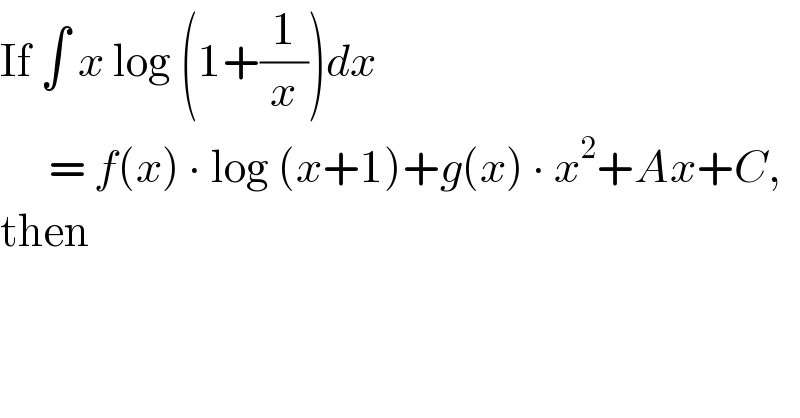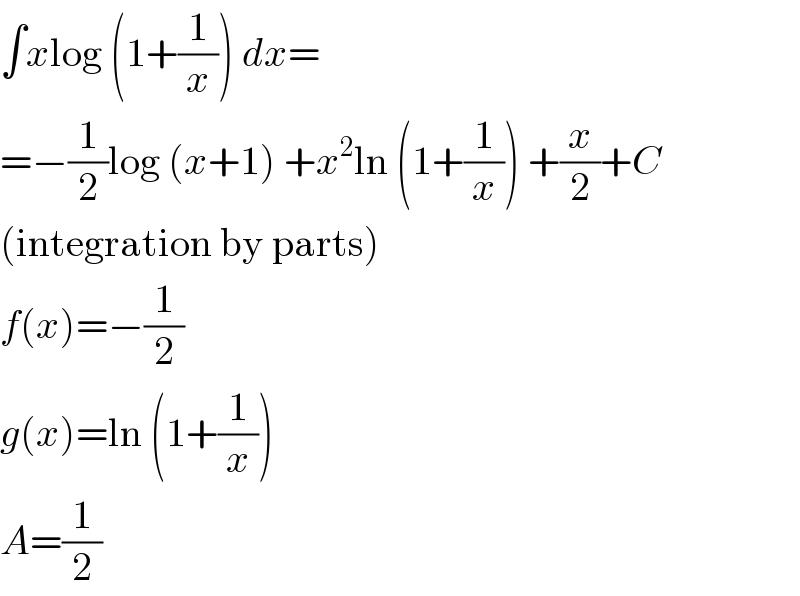
Question Number 55779 by gunawan last updated on 04/Mar/19

$$\mathrm{If}\:\int\:{x}\:\mathrm{log}\:\left(\mathrm{1}+\frac{\mathrm{1}}{{x}}\right){dx}\: \\ $$$$\:\:\:\:\:\:=\:{f}\left({x}\right)\:\centerdot\:\mathrm{log}\:\left({x}+\mathrm{1}\right)+{g}\left({x}\right)\:\centerdot\:{x}^{\mathrm{2}} +{Ax}+{C}, \\ $$$$\mathrm{then} \\ $$
Commented by gunawan last updated on 04/Mar/19

$$\mathrm{Find}\:{A} \\ $$
Commented by gunawan last updated on 04/Mar/19

$${A}= \\ $$$${f}\left({x}\right)= \\ $$$${g}\left({x}\right)= \\ $$
Answered by MJS last updated on 04/Mar/19

$$\int{x}\mathrm{log}\:\left(\mathrm{1}+\frac{\mathrm{1}}{{x}}\right)\:{dx}= \\ $$$$=−\frac{\mathrm{1}}{\mathrm{2}}\mathrm{log}\:\left({x}+\mathrm{1}\right)\:+{x}^{\mathrm{2}} \mathrm{ln}\:\left(\mathrm{1}+\frac{\mathrm{1}}{{x}}\right)\:+\frac{{x}}{\mathrm{2}}+{C} \\ $$$$\left(\mathrm{integration}\:\mathrm{by}\:\mathrm{parts}\right) \\ $$$${f}\left({x}\right)=−\frac{\mathrm{1}}{\mathrm{2}} \\ $$$${g}\left({x}\right)=\mathrm{ln}\:\left(\mathrm{1}+\frac{\mathrm{1}}{{x}}\right) \\ $$$${A}=\frac{\mathrm{1}}{\mathrm{2}} \\ $$
